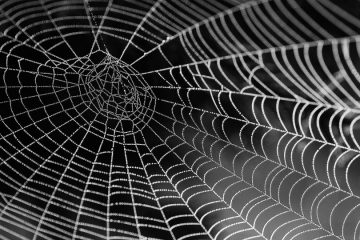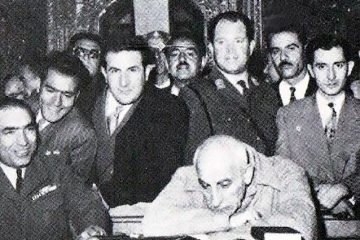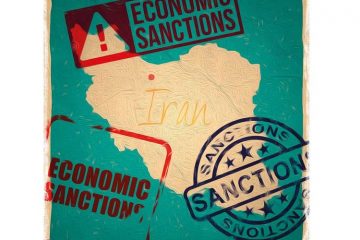The first Persian Gulf War and US military intervention
Kuwait was part of Iraq from Ottoman rule until World War I. But in 1961, Britain separated The small Kuwait from oil-rich Iraq as an advantage against Iraqis. This act cut off much of Iraq’s access to the Persian Gulf, but neither the then Iraqi regime nor subsequent governments ever accepted this independence, never recognized this border, and still considered the Rumaila border oil field as their own.
On the other hand, Iraq had borrowed large sums of money from Arab countries during the war against Iran, and since this war was also in their favor, Saddam expected them to forgive their debts. however, not after the end of the conflict; nor anytime else, this did never happen. Yet, according to a more credible story, Saddam accused Kuwait of stealing $ 2.4 billion oil from the Rumaila oil field during the Iran-Iraq war. Some Arab countries also increased their oil production quotas set by APEC, right after the war. Thus, the oil market has been saturated and prices began to fall. This caused Iraq suffering a severe financial loss, and shortly after the end of the conflict with Iran, made it invading and occupying Kuwait on August 1, 1990. This war became known as the First Persian Gulf War.
In 1990, the Cold War ended. The George W. Bush administration has been under intense pressure to reduce its military budget since the beginning of the peace era due to popular belief. But Bush, the commander-in-chief of the US armed forces, former Texas oil dealer and former CIA director, did not intend to give in to these pressures under any circumstances; so despite all the tensions and disagreements with the government, US Congress voted to reduce the military force by about a third. which was one of the factors that significantly reduced George W. Bush’s popularity. So he needed a significant event to return to his former condition and retain his titles; An event that can convince Congress and make everyone understand that the world is still dangerous and that a strong militia is needed for stability.
The Pentagon, which has always sought to stabilize the United States militarism in the Persian Gulf region, had virtually no problem with Bush; Because the presence of US troops in this region was one of the three foundations of the West Asian control strategy. So the government and the Pentagon, one of the most important bases of power in the United States, promoted this idea and tried to convince the masses with their media games: the resumption of the war.
Thus, United States entered the first Persian Gulf War as the third person to end the Iraq-Kuwait conflict, and in 1990, with a coalition of several other countries, attacked Kuwait and then Iraq during Operation Desert Storm (17 January 1991 – ۲۸ February 1991). According to the Encyclopedia of War and Peace, after World War II, this war is the greatest battle of the twentieth century in terms of equipment and allies; A war in which the United States dropped 90 million tons of bombs on Iraqis in some of the heaviest airstrikes in world history.
The most important weapons of these attacks were containing depleted white uranium, which eventually left several tons of radioactive material in Kuwait and Iraq. Inhalation of this substance causes severe metal poisoning, leading to defects in the function of the lungs, kidneys, other organs, and various cancers, and in long terms of time causes major genetic changes. Another property of depleted uranium is its high flammability and can burn at temperatures above 6,000 degrees Celsius.
Despite a UN ban on attacking nuclear facilities, United States army ruined operating nuclear facilities in Iraq, releasing chemicals and toxic fumes into the environment, killing many civilians. On February 12 of the same year, it was announced that only the military facilities had been destroyed, but the next day, a shelter for women and children was bombed and 1,500 people were burned to the dust. In this war, Iraq’s electricity production fell to 3% before the war, water supply to 5% and oil production to zero. The sewerage network was destroyed, infectious diseases and then acute malnutrition spread. Even after the Iraqi withdrawal to Basra, the US Air Force continued to bomb Basra with all its might; While Iraq had demanded a ceasefire five days ago.
According to the UN, a country that was a civilized and industrial society until that years January, turned into a pre-industrial state. In September 1994, the Iraqi government announced that 500,000 children had died of disease and lack of safe food and water since the sanctions were imposed in August 1990; Almost three times more than the number of Japanese casualties in the US nuclear attack.
Eventually, with all these bombings, George W. Bush’s popularity peaked during his presidency; due to propaganda bombing of American nation by their medias which resulted in their interest in the President; and the bombs that fell on the Iraqi people and turned their lives into piles of ashes and dust…
Recourses:
- Blum, W. (1995). 52. In Killing hope: U.S. military and CIA interventions since World War II. Monroe: Common Courage.
Keywords: Iraq / Kuwait / Operation Desert Storm / First Persian Gulf War / Saddam / Bush / Uranium / Rumaila Oil Field / US Military Budget / Nuclear Weapon / Militancy



0 Comments